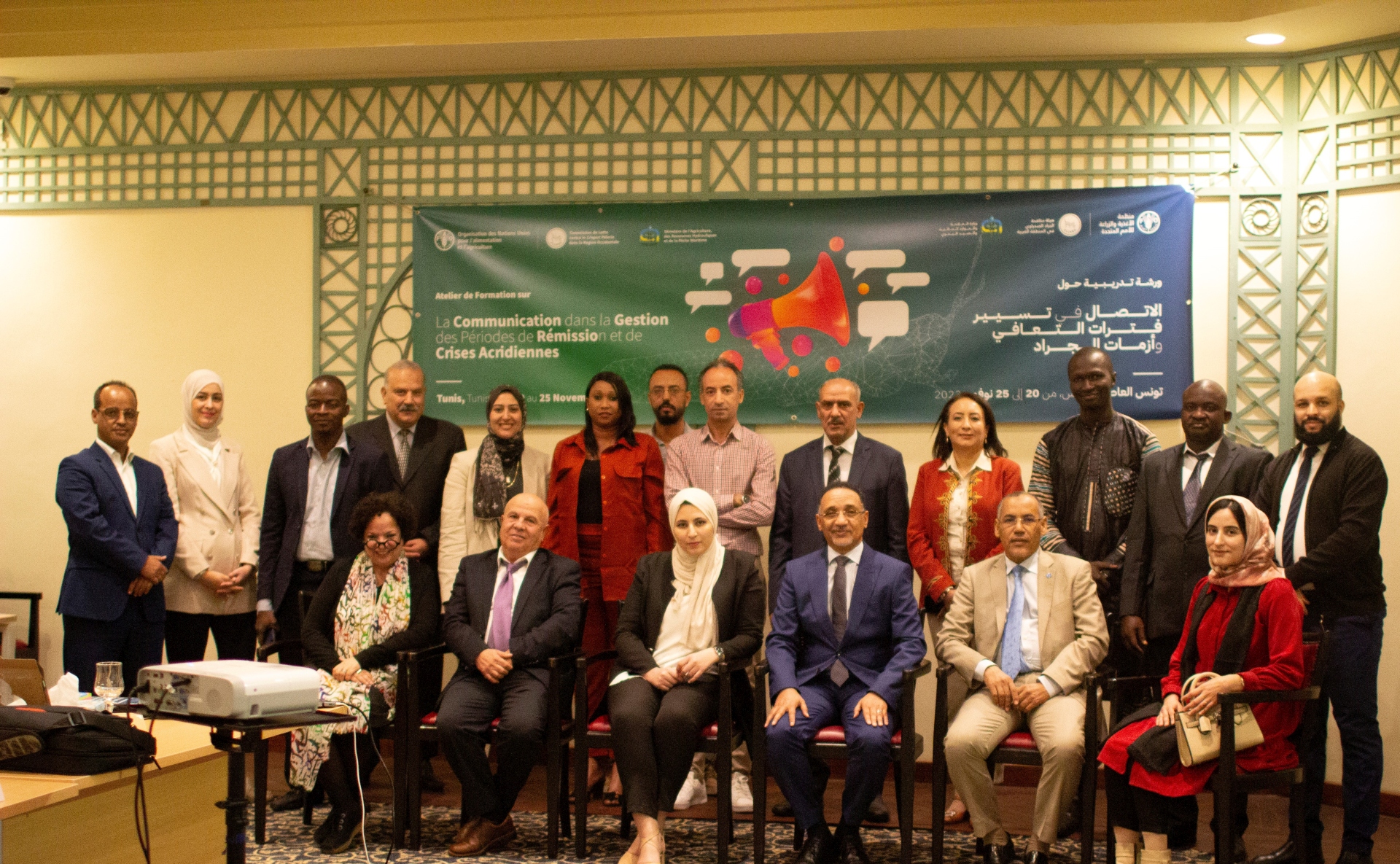Institutional communication to track and address the transboundary scourge of the desert locust

November 20-25, 2023: In partnership with the Ministry of Agriculture, Hydraulic Resources, and Fisheries, the Commission for the Fight against the Desert Locust in the Western Region (CLCPRO), a specialized executive body in combating the Desert Locust in West and Northwest Africa, under the auspices of the Food and Agriculture Organization of the United Nations (FAO), is organizing a communication training workshop.
In his address, Mr. Mohamed Lemine Hamouny, Executive Secretary of CLCPRO, emphasized the challenges posed by communication in the context of preventing locust invasions. Periods of remission require constant awareness to maintain commitment and necessary resources. Crises, on the other hand, demand rapid, precise, and coordinated communication to mitigate impacts and protect our communities. In addition to the practical dimension, the goal is to share knowledge, develop skills, and create concrete plans to improve communication.
In his speech, Mr. Mohamed Rebah Hajlaoui, General Manager of Plant Health and Control of Agricultural Inputs, specified that 'the Desert Locust, a transboundary pest, is one of the most significant challenges to which Tunisia, like other countries in the region, attaches particular importance given the threat it poses... In Tunisia, a surveillance and early detection system for pests and diseases affecting various crops is in place.
This workshop aims to strengthen the capacities of focal points from the ten member countries in institutional communication during periods of remission and emergencies related to the Desert Locust. The outcomes will involve aligning key principles and best practices of institutional communication with their technical skills in anti-locust efforts, using a range of communication tools and technologies to effectively raise awareness about the locust situation in the region, and developing effective communication plans and activities for their respective countries. In addition to its ability to devour large quantities of vegetation, the Desert Locust represents a formidable enemy for humans. Due to its great adaptability to ecological and environmental conditions, it is always present even in small numbers and can quickly transform into a gregarious phase, forming large swarms that pose a real threat to the livelihoods of populations
The relevance and importance of communication come into play not only to enhance the visibility of the Commission's work and results but also to instigate a dynamic of institutional communication capable of providing participants with the ability to translate increasingly specialized technical expertise into content that is accessible and understandable for various partners.
About CLCPRO:
Established on February 25, 2002, under the provisions of Article XIV of the FAO Constituent Act, the Commission for the Fight against the Desert Locust in the Western Region aims to promote, at the national, regional, and international levels, all actions, research, and training to ensure preventive measures and respond to Desert Locust invasions in the western region of its habitat. This region comprises 10 countries in West and Northwest Africa: Algeria, Burkina Faso, Libya, Mali, Morocco, Mauritania, Niger, Senegal, Chad, and Tunisia.
Contact
Executive Secretariat of CLCPRO
Executive Secretary
Contact Communication CLCPRO
Yasser Takie Eddine ABDESSELAM
Communication Specialist
